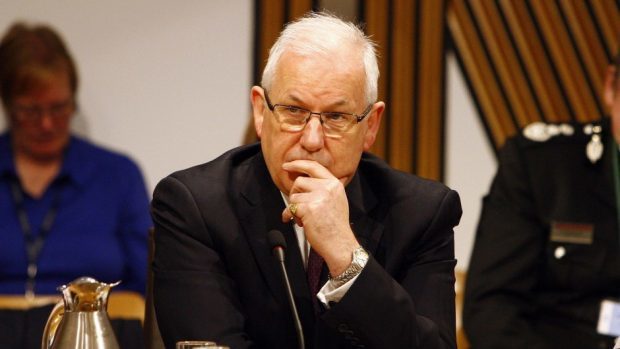Police chiefs have admitted they must become more efficient to deal with the changing nature of crime in the next decade.
Police Scotland wants members of the public to take part in a consultation as the body forms a strategy to adapt to future challenges.
Speaking during a visit to the north-east Scottish Police Authority chairman Andrew Flanagan explained how he expected the work of the police to change in the future.
He said: “The challenge for us is that the nature of crime is changing.
“Cybercrime is now becoming a problem, it used to be the case that crime was carried out by local people but now people can be victims of crime carried out by people in say Russia, Romania or China and similarly people here can carry out crimes against people across the world.
“The creation of Police Scotland has allowed us to use economies of scale to decide how best to respond to crimes.”
Andy Cowie, the assistant chief constable for the northern constabulary, urged people to take part in the Policing 2026 consultation.
He also acknowledged the police must become more efficient.
He said: “It is important that members of the public that the opportunity to get involved with the Policing 2026 and have a discussion about policing in their communities.
“It is important that people have faith in the officers, that is the key of a successful policing service.
“Every area of Scotland is different, the Highlands and Islands are different from the north-east which is different from Glasgow.”
“In the north-east you have urban areas like Aberdeen, Peterhead and Elgin which have the same problem as other cities.
“However you also have lots of rural areas which bring their own problems.
“Figures coming out from the police soon show around a 3% reduction in crime in the Highlands and Islands and also a fall in the north-east.
“Over the next ten years we will have to become more efficient, in 30 years with the police I have never met anyone who enjoys filling out forms.
“We need to gain better agility to get round this, perhaps people who will be good at tackling cybercrime will not need to do a few years training on the streets in future.”
Members of the public can take part in the survey by visiting https://consult.scotland.police.uk/consultation/2026/
